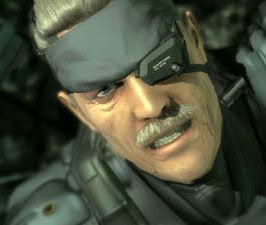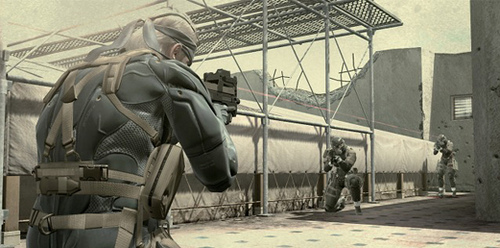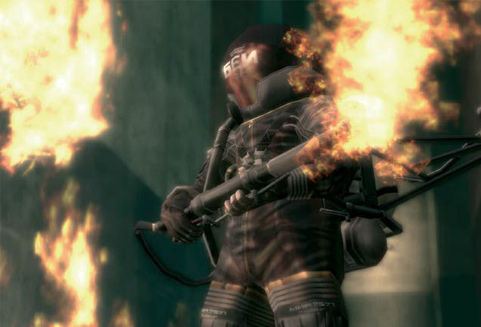This post has not been edited by the GamesBeat staff. Opinions by GamesBeat community writers do not necessarily reflect those of the staff.
Editor’s note: I’m with Nicholas on this. Metal Gear Solid 3 is my favorite entry in the franchise precisely because it isn’t held back by fitting together all of the convoluted MGS plot threads. It showed how impressive a storyteller series creator Hideo Kojima can be when he’s got a blank slate…and how MGS may well be holding him back. -Fitch

After the “conclusive” ending of Metal Gear Solid 4: Guns of the Patriots, some thought a brief hiatus and eventual reinvention of the Metal Gear franchise was in store. Series creator Hideo Kojima had other plans, though, as the next Metal Gear announcements came in the form of Metal Gear Solid: Peace Walker for PSP and Metal Gear Solid: Rising for PS3 and Xbox 360 — new games featuring the same convoluted MGS universe and story arcs. Peace Walker fleshes out more of the mysterious past of Big Boss, much of which is still potentially untold. Rising will hopefully add insight into the world of Raiden and answer the questions of what exactly happened to him between the years of MGS2 and MGS4.
But after MGS4 went to such great lengths putting the MGS plotlines to rest, introducing two new installments in that same series feels a bit odd. The familiarity of the universe certainly makes it considerably easier to release new installments — as opposed to introducing a new Metal Gear overhaul — but two new games in a universe that developer Kojima Productions worked so hard to “conclude”? That seems like the opposite of what the franchise needs: a fresh start.

Metal Gear Solid 4: Guns Of The Patriots concluded the MGS series’ plot in epic style. With the plotlines settled, maybe it’s time for a new, non-MGS Metal Gear.
Gameplay, which is usually why franchises get overhauls, isn’t even the reason Metal Gear needs a fresh start. After all, MGS games have always introduced improvements with each installment. If Kojima Productions were going to work on an overhaul of Metal Gear, gameplay improvements would be practically a given. No, what the franchise needs more than anything is a simpler, more accessible storyline — after all, many one-time fans of the series walked away after becoming frustrated with the myriad characters and plot threads. A fresh start for Metal Gear means a chance to keep the stories simple and accessible from the beginning.
Instead, fans long for a return to the core elements of the original Metal Gear Solid — and the fact that many champion Metal Gear Solid 3: Snake Eater as a high point for the MGS series highlights this. MGS3 featured more focused storytelling, memorable boss battles, a fleshed-out cast of characters, and stretches of strong core stealth gameplay — the same elements that elevated the original game to classic status. While MGS2 felt “segmented” at times due to drawn-out cut-scenes, MGS4 is by far the most segmented installment of the MGS series — not only does it feature the requisite epic cut-scenes, but it’s also divided into chapters…and includes interminible install times between those chapters.

MGS3 was a return to classic form for the MGS series, with its focused storytelling and tolerable gameplay-to-cut-scenes ratio. If a new, non-MGS Metal Gear is on the horizon, it should strive to be like MGS3.
So long as MGS remains a viable universe with potential and fan interest, though, the series is sure to continue. And Kojima Productions can’t be blamed for wanting to explore the universe they worked so hard to create, especially with the high risks associated with new franchises in this generation. However, some fans are waiting for Metal Gear to start over — and neither they nor diehard MGS fans would likely be alienated by a Metal Gear overhaul. After all, it’s Kojima Productions’ talent that draws an audience — not just the characters of Solid Snake and Big Boss.
